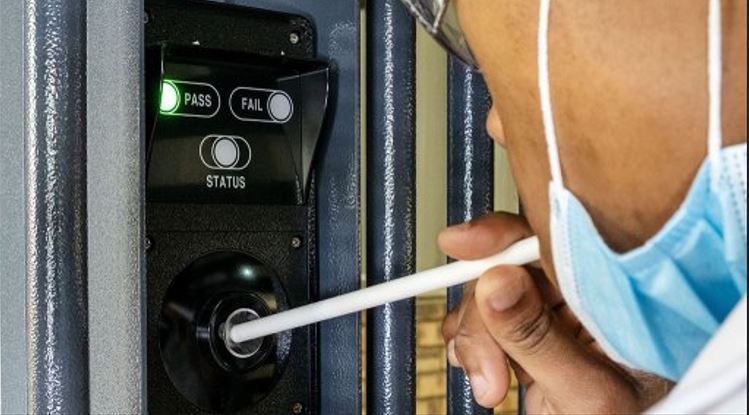
Illustrating that indeed “Necessity is the mother of innovation“ some manufacturers and suppliers of breathalysers in South Africa have developed techniques to cope with the effects of COVID-19.
One of them involves the use of eight-millimetre paper straws, which are disposable, and alcohol-free wipes, as well as the use of stands. These steps have eliminated the necessity of making wholesale physical changes or adaptations to the company‘s breathalyser equipment.
Alcohol breathalysers cannot be used in the workplace and mining environments in the same way as they were before the outbreak of the pandemic. One of the biggest concerns in the pandemic environment is the risk of infection. The mouth and nose are the entry points for coronavirus to the body. The problem arises when devices have to be used for testing hundreds of employees, which increases the risk of the spread of infection through contact and blowback breathalyser testing.
Challenge and opportunity alike
This has presented the manufacturers and suppliers of breathalysers with a challenge and an opportunity alike to supply products that are safe and hygienic to use. It is a challenge in that the original designs did not accommodate a situation in which there is a pandemic, and it would involve adaptation. Adaptation, though essential, is a time-consuming process.
This would also mean recalling all products for retrofitting or supplying brand new COVID-19-compliant alternatives. In both cases, the end-user, to whom breathalysers are a critical part of managing their workforce, would be stranded, and their operations would stall. On the other hand, it is an opportunity for innovative thinking – necessity being the mother of innovation.
Paper straws and stands as an alternative
For one of the biggest suppliers of breathalysers to diverse industries in South Africa and neighbouring countries, Alcohol Breathalysers, this situation is no exception. Alternatively, to help end-users of its products cope, the company has recommended the use of eight-millimetre paper straws, which are disposable, and alcohol-free wipes, as well as the use of stands. These steps have eliminated the necessity of making wholesale physical changes or adaptations to the company‘s breathalyser equipment.
On the relevance of the paper straws and alcohol-free wipes, the managing director, Angus MacArthur, says the step ensures that the equipment remains sterile before and after testing. “Blowing into the Entrance Breathalyser System with a paper straw allows for safe breath alcohol testing, as the exhaled breath does not return towards the person being tested or towards the next person blowing into the breathalyser.“
Another step was producing stands against which breathalysers can be fixed or magnetised. This allows for no physical contact between the person being tested and the actual breathalyser, and no handling of the equipment when carrying out alcohol screening.
Guidelines
Concerning Covid-19, amendments to the Mine Health and Safety Act regulations to stipulate safe breathalyser-use guidelines have been accepted and gazetted. These have provided guidelines for manufacturers like Alcohol Breathalyser to apply in developing techniques to adapt their breathalysers to the new environment.






